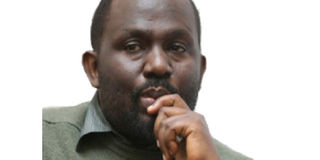Land: Museveni can have his cake and eat it too

President Yoweri Museveni has run into some serious headwinds, in his plans to change the Constitution to make it easier, basically, for the government to grab one’s land for “development” for the price of the first stanza of the National Anthem.
The 1995 Constitution was, in several ways, revolutionary when it provided that land belongs to the people. And with that was enshrined the idea that if the government wanted land, it could not acquire it compulsorily without compensation valued at close to the going market rate. I do fully appreciate that there is scalping in land pricing when all of a sudden there is a plan for some high value infrastructure to run through it. Fellows come up with the craziest prices, but there is a smarter way of going around these things than diluting people’s right to their property.
This column has written before that one neat way to do this is to impose a land tax.
The second one is to offer people equity in the project in exchange for land. These market mechanisms that some people like to rail against these days, have their time-tested value.
For every acre of land, say the tax on it is Sh10,000 a year, on average. It can be more than double that near Kampala, and a quarter of that figure in a corner of pristine Koboko.
It can be backdated, say, to five years ago, for purposes of argument. The ka-fellow with a prime 10 acres on Entebbe Road, would have to pony up Sh100,000 a year.
If there is a development on the land, the first 10 acres of a piece would be levy-free. The tax would apply to the rest of the acres after the 10. But if the whole land is covered with maize or cattle, then the tax doesn’t apply. You tax the crops and crops when they are sold.
Now, of course, most Ugandans wouldn’t be able to pay. But that doesn’t mean they would lose their land. No, the system would be such that the tax is debited against them every year.
So, again to our brother on Entebbe Road. If he does nothing and just squats on the land, after 10 years, he would owe the government Sh1 million. If the levy was 10 times higher, he would owe Sh10 million.
If the government decides to build a dual carriageway that passes through his land, the law could be such that he cannot price it more than 50 per cent beyond the Sh10 million he owes. The most he could sell it for, therefore, would be Sh15 million. But the law would be such that the government would net off Sh10 million, so he would get Sh5 million.
Now, there is some land that has deep cultural and spiritual purposes, and there is also that which belongs to churches and mosques.
Cultural land would have a baked in premium.
Thus if the land on Entebbe Road was a sacred burial or worship ground, it would get Sh1 million points on its 10 acres every year. The idea is that when the tax levy applies, its rate becomes zero.
There are some churches in Uganda that have vast lands carried over from the pre-independence period when they were privileged by the colonial order. Today, some of it is leased out by corrupt bishops and priests. The amount of church land that is tax-free needs to be limited to no more than 20 acres, in places where they do not have a school, hospital, or some community project.
This single move would see the tax woman (since it’s Doris Akol) with billions more in revenues pouring out of her ears. It would also entrench cultural property. But it would throw the land completely open and unleash some very disruptive but creative forces.
It would also make it much easier and cheaper for government to get land for “development”. And it would not require a Constitution amendment.
So why isn’t this market-clever and neat option being pursued? Simple, because it would apply to everyone, and right now, the powerful people, including possibly the President himself, hold vast tracts of land.
Part of the spoils of office, and the patronage these landed people enjoy, is that they get to hold on to large pieces of land for speculative purposes without having to pay a penalty for their market-distorting behaviour. Seizing it punishes the smaller powerless men and women.
The other option is equity. If you are building a toll road through the land, give the landowners a share in it. If it is an airport, let them own a piece of it and share in some of its revenue. Since Museveni wants to be on the throne for life, this is the more peaceful path.
Mr Onyango-Obbo is the publisher of Africa data
visualiser Africapedia.com and explainer site Roguechiefs.com. Twitter@cobbo3




